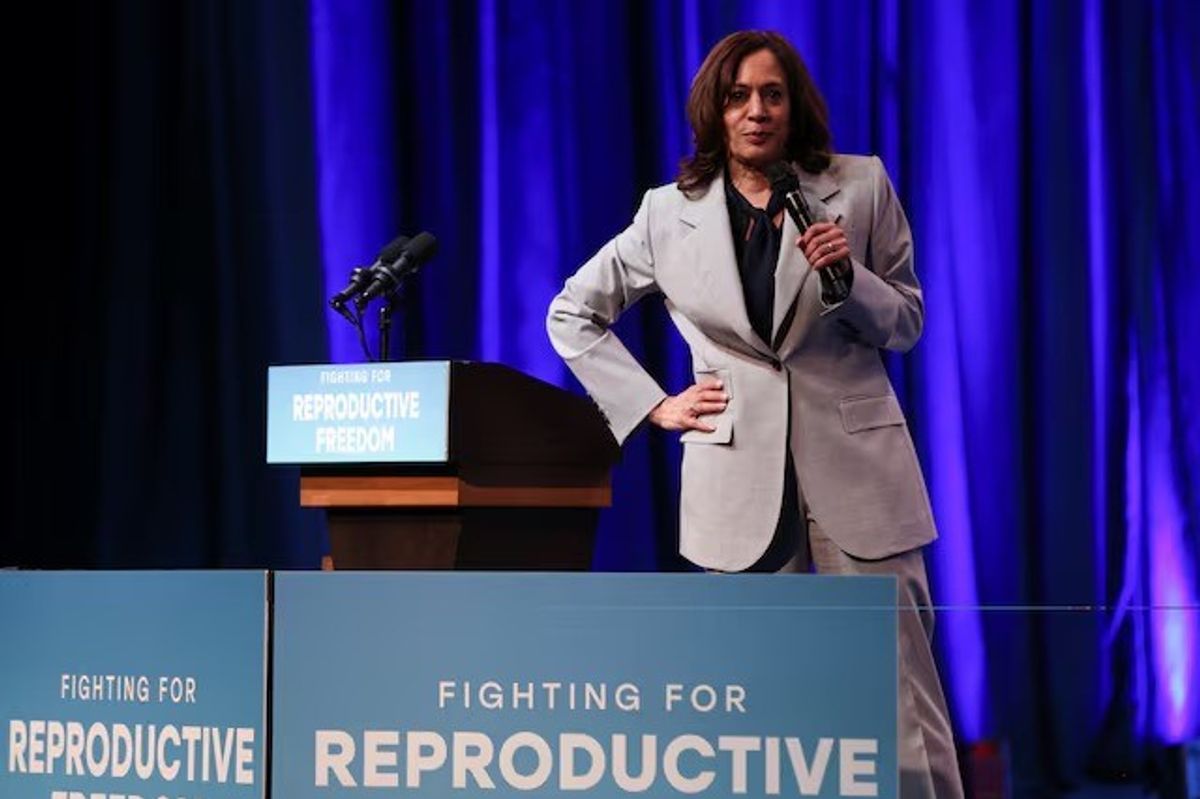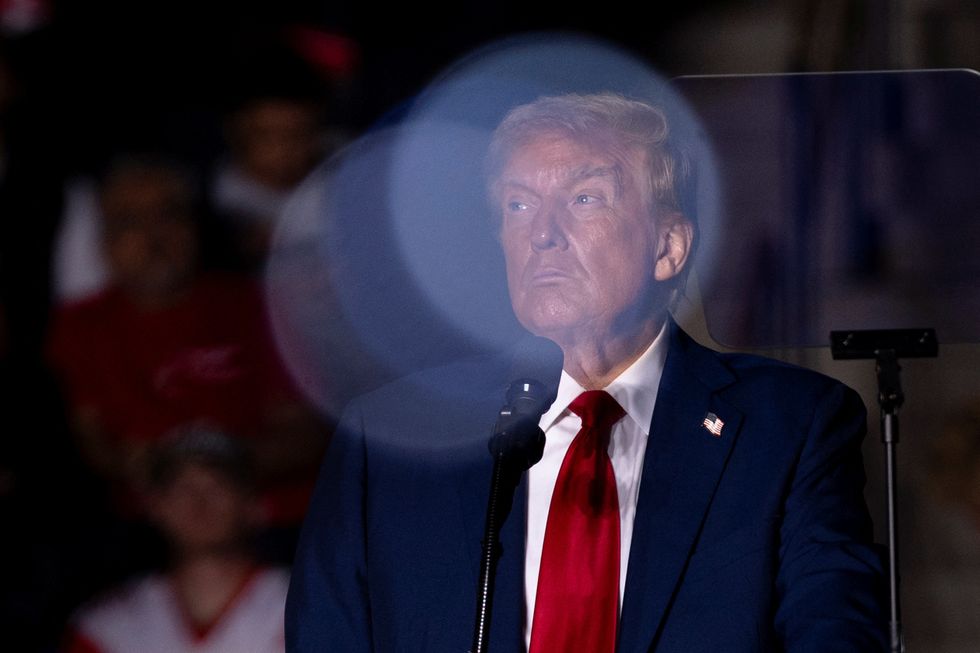Harris' abortion focus fell short, dashing hopes of a federal right
Abortion laws will likely remain state-specific for the next few years
Reuters
News Agency Partner
Reuters is a leading source of news and information, delivering fact-based reporting and expert analysis on international events and trends.

U.S. Vice President Kamala Harris speaks at an abortion rights rally at Howard University in Washington, U.S., April 25, 2023
Reuters
Abortion wasn’t a major issue for voters, with 14% prioritizing it, compared to 32% for the economy
Harris won women’s vote, but by a smaller margin than Biden in 2020, with Trump gaining ground
Anti-abortion groups are preparing to challenge Biden-Harris policies as Trump assumes office
A vital part of Democrat Kamala Harris' presidential campaign was tapping into the groundswell of women's anger and political activism unleashed by the U.S. Supreme Court's 2022 decision overturning the federal right to an abortion.
The issue failed to drive the turnout the vice president needed, as other topics proved more salient. Just 14% of voters cited abortion as their top issue in the White House race, while 32% cited the economy, an Edison Research exit poll showed.
Although women voters favored Harris over Republican Donald Trump, 53% to 45%, she won less than the 57% that President Joe Biden received in 2020, and Trump's number was 3 percentage points more than he received in 2020.
Harris had 51% of the support from voters under 45, who tend to cite abortion as a more important issue than older voters do, compared to Trump, whose 46% support was up 4 points from a 2020 exit poll.
The conservative court's 6-3 decision in 2022 to overturn the landmark 1973 Roe v. Wade ruling, backed by three Trump-appointed justices, triggered a wave of restrictive abortion laws in Republican-controlled states.
That ruling and the subsequent state bans were widely unpopular and credited for fueling a string of Democratic and abortion rights ballot measure wins in the two years that followed.
Harris' campaign ran on the message that Trump would further erode reproductive healthcare access, including contraception and fertility treatments, but that she would back a federal law to restore abortion rights nationwide.
Activists anticipate more restrictions are coming.
"We think that he and the people around him will seek to restrict reproductive healthcare access across the board," said Deirdre Schifeling, chief political and advocacy officer at the American Civil Liberties Union.

While Trump has floated interest in a federal 15-week ban, he has more recently insisted he would leave the issue to the states.
“President Trump has long been consistent in supporting the rights of states to make decisions on abortion,” Karoline Leavitt, Trump-Vance Transition spokeswoman, said when asked which reproductive health policies he would pursue.
Just 45% of voters nationwide said they trusted Trump more than Harris on the issue of abortion, exit polls show, while 49% said they trusted Harris more on the issue.
Some voters felt they could support abortion rights and Trump at the same time, election results showed. Trump won in Missouri and Florida, both states where abortion rights ballot measures received majority support, although the Florida vote fell short of the 60% threshold needed to pass.
State-by-state patchwork
While abortion rights advocates took solace in that seven of 10 measures on state ballots passed, Harris' loss crushed hopes that the next president might sign federal legislation that restored the protections of Roe v. Wade, which allowed abortion through fetal viability or 24 weeks.
Instead, abortion laws in the U.S. will likely remain a state-by-state patchwork for at least the next four years.
Jessica Mackler, president of pro-abortion rights political group Emily's List, said state-level elections for positions like state supreme court judges and statewide constitutional officers would be paramount to preserving abortion access under Trump, who will take office on Jan. 20.
"They have taken this fight to every level of government, and we have to do the same," she said of the abortion rights movement.
Some anti-abortion groups said they were eager to press new policies in a Trump administration.
"Now the work begins to dismantle the pro-abortion policies of the Biden-Harris administration," said Marjorie Dannenfelser, president of anti-abortion group Susan B. Anthony Pro-Life America.
She said her group had succeeded in reaching millions of voters and convincing them that the Democratic platform on abortion rights was too extreme, and she called on the Republican Party to strengthen its stance on the issue and recognize an "unalienable right to life" under the 14th amendment from the moment of conception.










Comments
See what people are discussing